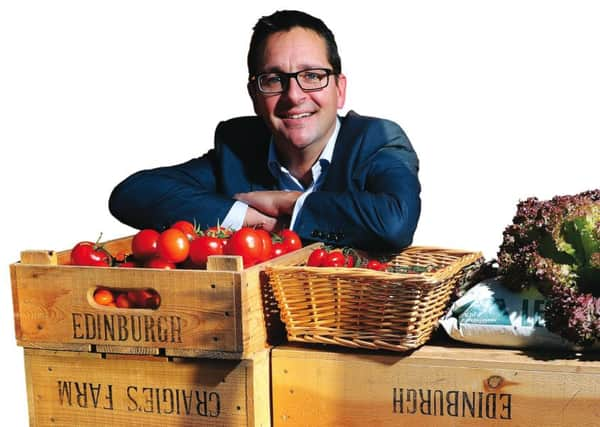James Withers: how can Scotland build on its food and drink success?


In many ways, the answer lies in understanding the recipe for success to date.
Clearly, the sector is underpinned by talented farmers, fishermen, and food and drink producers.
Advertisement
Hide AdAdvertisement
Hide AdThey are a diverse group, from small to large businesses, from start-ups to long-established global brands.
In my experience, they are all driven by the quest for quality – to stand out from the pack.
Those underlying ingredients have been harnessed and unleashed on the market at home and around the world thanks to a unique form of collaboration between the industry and the Scottish Government.
The phrase “public-private sector collaboration” doesn’t exactly set the pulse racing, but boy does it work when you get it right.
It is backed by a parliament that “gets it” too.
The Scotland Food & Drink Partnership has become the embodiment of this new model of working.
Collectively, we are united behind a single goal: to make Scotland a model of collaboration in food and drink, a world leader in responsible, profitable growth and home to a sector worth £30bn by 2030.
However, there is one other special ingredient in this recipe for success: “Brand Scotland”.
For a nation like ours, national branding is an incredibly powerful tool. It forges a platform from which our producers can compete in global markets.
Advertisement
Hide AdAdvertisement
Hide AdIt makes the discussion less about price and more about provenance, world-class production and a commitment to sustainability.
From sustainable red meat and seafood, to small-batch gin and craft beers, innovative bakeries and dairies, people across the UK and overseas increasingly associate Scotland with quality.
Promoting Scotland as “a land of food and drink” not only benefits the food and drink industry but has wider implications.
It is about reflecting the kind of open, welcoming, responsible country we aspire to be.
It helps underpin another of the nation’s great assets, our tourism industry.
Much is rightly made of Scotland’s food and drinks export performance.
However, visitors to our shores are crucial too.
They spend almost £1bn on eating and drinking when they’re here.
And it is now one of the fundamental parts of the Scottish experience, driving repeat visits and cementing our reputation as one of the world’s leading destinations.
Advertisement
Hide AdAdvertisement
Hide AdThat is why the work of Scotland Food & Drink, the Scottish Tourism Alliance and Scottish Government to drive forward a national food tourism plan really matters.
So what next for our national brand? The opportunity afforded to us from technology and the changing way in which consumers interact with products is enormous. In a future where consumers will demand to know the full story of the food in their shopping baskets – at the touch of a button – there is a great chance for us to tell our provenance story.
Our story must be about heritage and innovation, the landscapes and coastlines from which we harvest, and the people behind our products.
However, it will also be about recognising that we are living in a climate emergency and we want to lead the way in tackling it.
No column on food and drink at the moment can be written without mention of Brexit.
The potential disaster of a no-deal exit for many of our most important farming and food sectors has been well-aired. If economic logic wins the debate, a no-deal crash-out will be averted.
However, such is the emotion around the Brexit debate and the “leave at all costs” attitude of some of the most ardent Brexiteers, logic may be the casualty – a price worth paying to complete “the mission”.
Despite this though, Scotland should be optimistic and ambitious for the years ahead.
Advertisement
Hide AdAdvertisement
Hide AdOur food and drink sector shows that a culture of collaboration, a foundation of talented businesses and the crafting of a national brand can ensure long-term success, however challenging the weeks and months ahead may become.
James Withers is chief executive of Scotland Food and Drink
This article first appeared in The Scotsman’s Food and Drink 2019 supplement. A digital version can be found here.